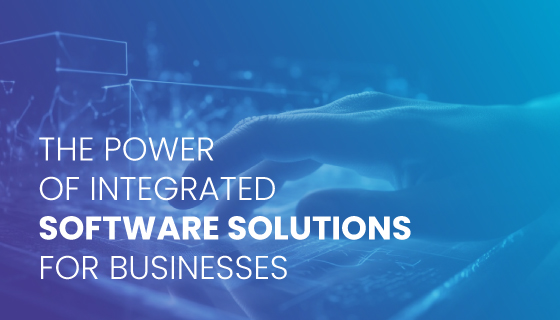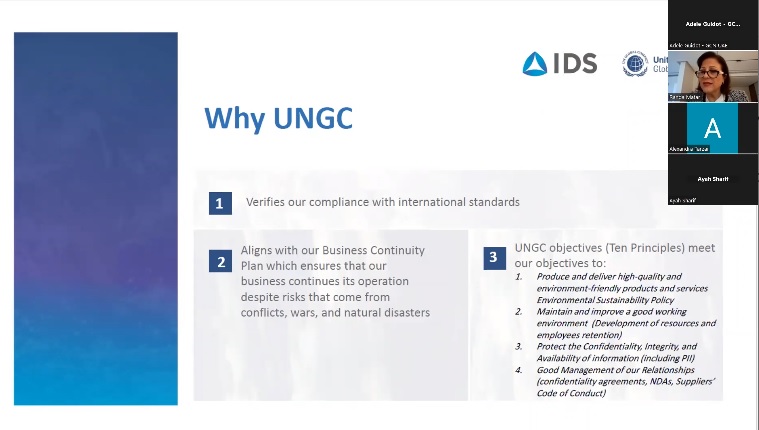
29 Apr 2024
In today's fast-paced business landscape, leveraging software solutions is paramount for enhancing productivity and maintaining competitiveness. However, managing multiple standalone software applications can lead to inefficiencies and data inconsistencies. This is where software integration services come into play, offering a seamless solution to connect disparate systems and unlock the full potential of technology for businesses.
The Importance of Software Integration
In today's digital ecosystem, businesses operate within a highly interconnected environment where data flows across departments, applications, and devices. Software integration is essential for various reasons:
Merging Multiple Systems: Organizations managing multiple systems for tasks like inventory management and data reporting benefit from software integration, creating a unified ecosystem for real-time insights and informed decision-making.
Enabling Digital Transformation: Software integration serves as a cornerstone for digital transformation initiatives, empowering businesses to drive innovation and achieve strategic objectives.
Increasing Functionality: For organizations requiring expanded functionality, software integration offers a scalable solution to meet evolving needs.
Benefits of Software Integration for Businesses
Improved Data Accuracy and Consistency: Real-time synchronization of data across systems ensures data consistency and accuracy, eliminating the need for manual checks and reducing errors. This provides businesses with a centralized data source for informed decision-making.
Enhanced Efficiency: Automation of repetitive tasks and streamlined processes minimizes manual data entry, this reduces the risk of errors, saving time and resources for more strategic initiatives.
Scalability and Agility: Integrated solutions offer agility and scalability, enabling businesses to adapt quickly to market changes and scale operations as needed.
Better Collaboration and Communication: Breaking down data silos facilitates seamless information sharing and collaboration across departments. When teams work within the same ecosystem and have access to shared data, it facilitates smoother collaboration and enables them to make informed decisions promptly.
Top of Form
Enhanced Customer Experience: Integration enables personalized interactions and improved customer satisfaction by providing teams with access to unified customer data.
Cost & Time Savings: Integration helps businesses save time and money by eliminating redundant tasks, reducing errors, and optimizing utilization of resources.
Software Integration Technologies
Integrating software with another software requires careful consideration of various factors such as compatibility, scalability, security, and ease of implementation. Here are some of the best technologies commonly used for software integration:
APIs (Application Programming Interfaces): APIs serve as the standard method for enabling communication and data exchange between different software applications. RESTful APIs, in particular, are widely adopted due to their simplicity and flexibility. APIs allow developers to define endpoints for accessing and manipulating data, facilitating seamless integration between systems.
Web Services (SOAP and REST): SOAP (Simple Object Access Protocol) and REST (Representational State Transfer) are protocols used for building web services that enable interoperability between different software platforms. While SOAP provides a more rigid and standardized approach to integration, REST offers a lightweight and flexible solution suitable for modern web-based applications.
Message Queues and Middleware: Message queuing systems facilitate asynchronous communication between software components by decoupling producers and consumers of messages. Middleware solutions provide additional functionalities such as message transformation, routing, and protocol mediation, making them valuable for integrating disparate systems.
Database Replication and Synchronization: Database replication and synchronization techniques such as master-slave replication, master-master replication, and Change Data Capture (CDC) enable real-time data replication and synchronization between different databases, ensuring consistency and availability of data across integrated systems.
Custom Integration Solutions: In some cases, custom integration solutions tailored to specific business requirements may be necessary. Custom integration solutions can leverage technologies such as custom APIs, SDKs (Software Development Kits), webhooks, and custom data formats to achieve seamless integration between software applications.
OAuth and OpenID Connect: OAuth and OpenID Connect are authentication and authorization protocols commonly used for securing API access and integrating identity management across multiple software applications. OAuth enables delegated authorization, while OpenID Connect provides authentication services based on OAuth 2.0.
By leveraging these technologies, businesses can effectively integrate software with one another, enabling interoperability, data exchange, and collaboration across diverse systems and platforms.
The Future of Software Integration
As data volumes increase and cloud computing adoption grows, investing in robust software integration solutions will be crucial for staying competitive in the evolving marketplace. Software integration services will continue to play a pivotal role in driving efficient workflows and facilitating digital transformation.
Conclusion
Software integration services are indispensable for businesses seeking to streamline operations, drive innovation, and achieve success in today's digital landscape. With advancements in technology, integrated solutions offer seamless platform connections without the need for dedicated software engineers or specialized integrators. If you're looking to harness the power of software integration for your business, partnering with a reliable software integration company can help you achieve your goals seamlessly and cost-effectively.





